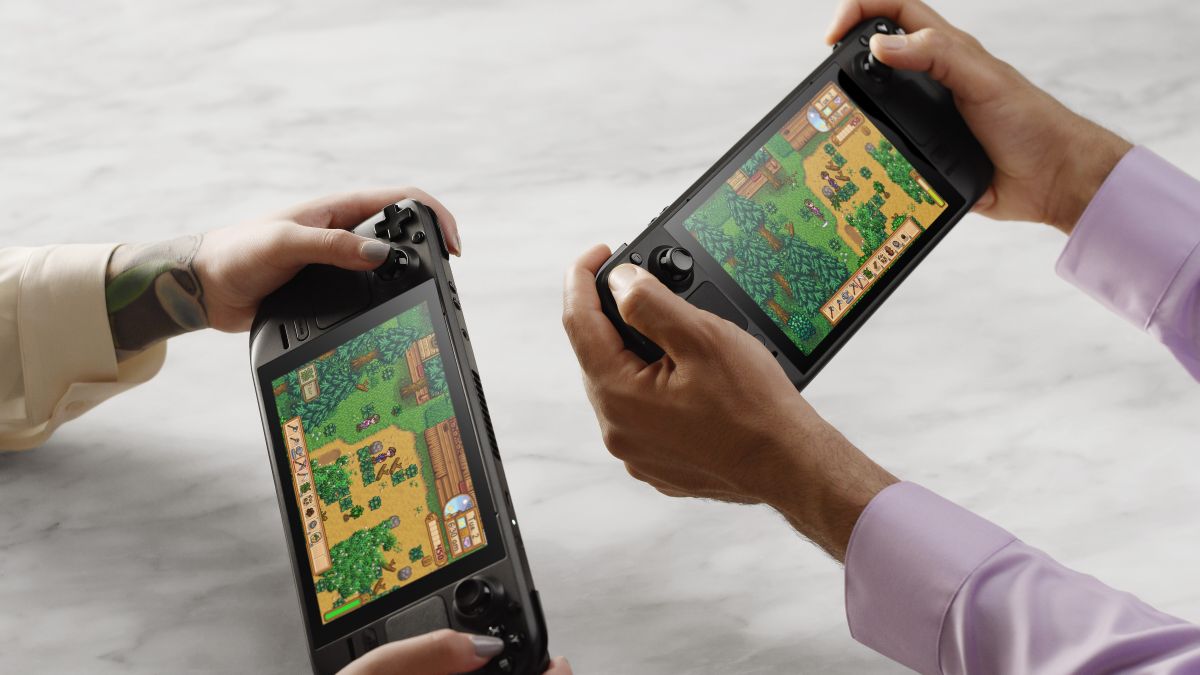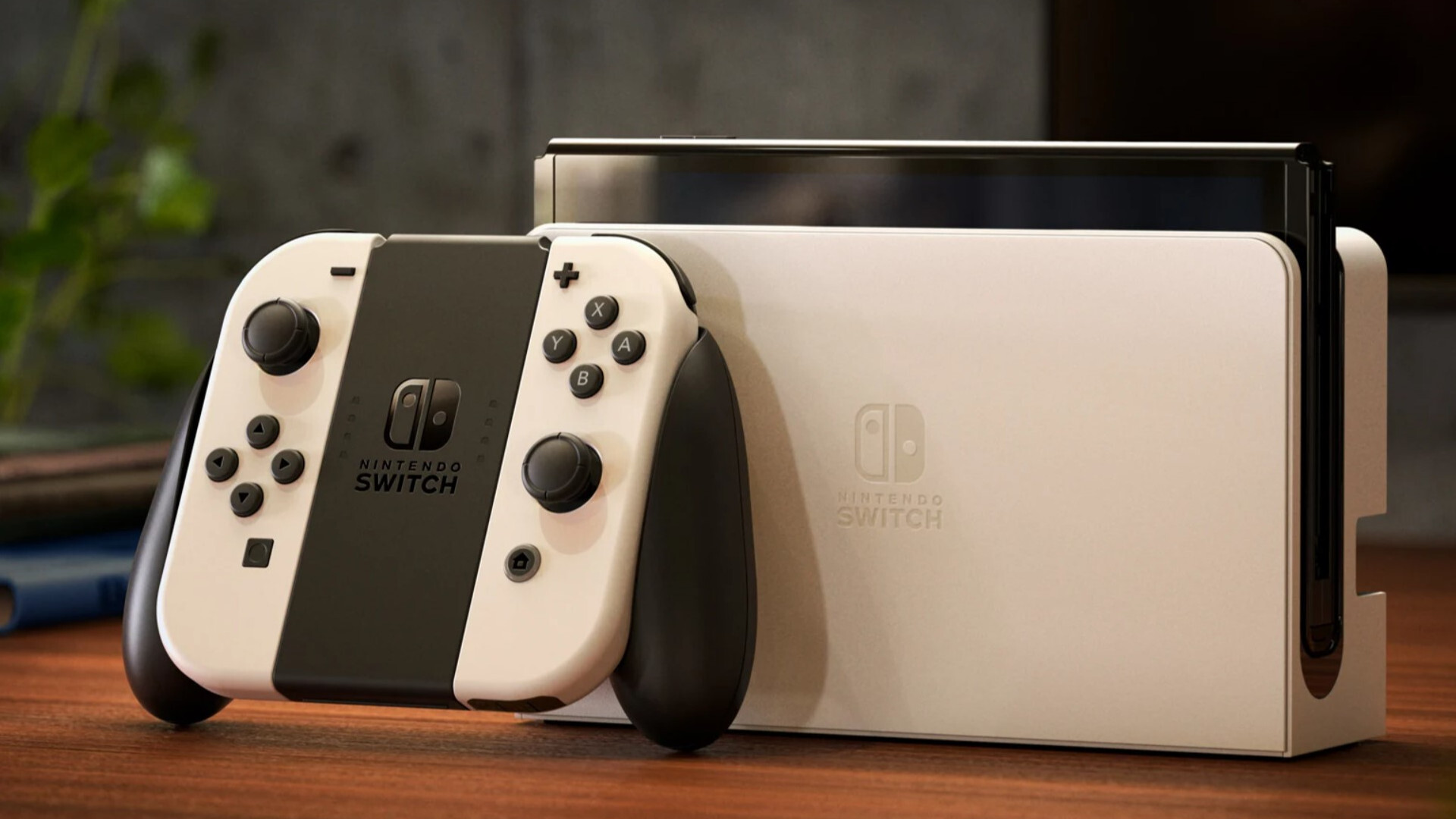Just like the Nintendo Switch, the Steam Deck is the result of failed hardware
Valve designers open up about what made the Steam Deck possible

Sign up for breaking news, reviews, opinion, top tech deals, and more.
You are now subscribed
Your newsletter sign-up was successful
The Steam Deck is set to become the handheld gaming PC of many players' dreams when it launches next year, but Valve staffers have come forward to say it likely wouldn't have happened if it wasn't for some of Valve's more notable flops – such as the Steam Machine.
The Steam Machine was a kind of pre-built gaming PC running a Linux-based operating system known as SteamOS. Valve didn't manufacture them itself, instead working in collaboration with third-party manufacturers like Alienware. While you can still get Steam Machines here and there, though, they didn't exactly set the market alight, and it's reassuring to hear that it might not have been an entirely wasted effort.
That's the sentiment expressed by Valve designer Greg Coomer, who told IGN that the Steam Machine was "a really good idea" that was let down by its operating system and a lackluster number of games supported by the Linux platform, failing to draw players and therefore interest from developers willing to port their games over.
- The best Steam games 2021
- Are desktop PCs dead?
- The best gaming PC 2021: top desktops for PC gamers
Those issues appear to have been addressed for the Steam Deck, though, thanks to a software fix that allows the Linux-based platform to run Windows PC games without a need for development-intensive ports.
"Really, we've looked at a lot of what we've learned as boxes that we needed to check if we were ever going to talk to customers again about that category," says Coomer. "We didn't really want to bring [the Steam Deck] to customers until we felt it was ready and that all those boxes were checked, essentially. But definitely, doing that, I don't think we would have made as much progress on Steam Deck if we hadn't had that experience."
The Steam Controller appears to have had an influence too, with early ideas for the Valve gamepad even including an inset screen. Valve designer Scott Dalton adds that "very early versions of the Steam Controller had a small screen in the middle of it, with the idea that it would be a programmable screen [...] at the time we were like, we could just take Steam Link hardware, put it in a Steam Controller, and make the screen show the link thing."
Analysis: A Nintendo success story?

It's a very similar story to that of the Nintendo Switch, the bestselling handheld console that came in the wake of the Wii U – a maligned, or at least ignored home console that largely confused prospective gamers with its tablet-like controller.
Sign up for breaking news, reviews, opinion, top tech deals, and more.
While the Wii U lagged behind in sales compared to the massive success of the Nintendo Wii, it's obvious that it also lay the groundwork for a lot of the key elements of the Nintendo Switch.
There's a clear through-line between the Wii U's tablet controller – essentially a handheld device connected to a home console – and the Nintendo Switch, which took this halfway solution to its natural conclusion, in making the home console a device that's actually portable.
The Steam Deck doesn't just share a development history with the Nintendo Switch, though. It's also pretty similar to look at, almost passing for a Nintendo Switch Noir with its simple black coloring, and its gamepad similarly split across either side of the screen.
What Valve has in its favor is a variety of models with different levels of processing power and storage – effectively offering the Switch Pro fans have been clamouring for over the past year or so – as well as the entire Steam library of games.
Nintendo, of course, has plenty of exclusive titles of its own, and anyone wanting to play the upcoming Breath of the Wild 2 (set for release in 2022) will need a Switch, Switch Lite or Switch OLED to do so.
And it may be the case that the Steam Deck is just a bit too pricey, or a bit too much of a retread for those with a well-packed Steam library on their gaming PC, to match the success of Nintendo's console and finally course-correcting the failures of Valve's past hardware.

Henry is a freelance technology journalist, and former News & Features Editor for TechRadar, where he specialized in home entertainment gadgets such as TVs, projectors, soundbars, and smart speakers. Other bylines include Edge, T3, iMore, GamesRadar, NBC News, Healthline, and The Times.